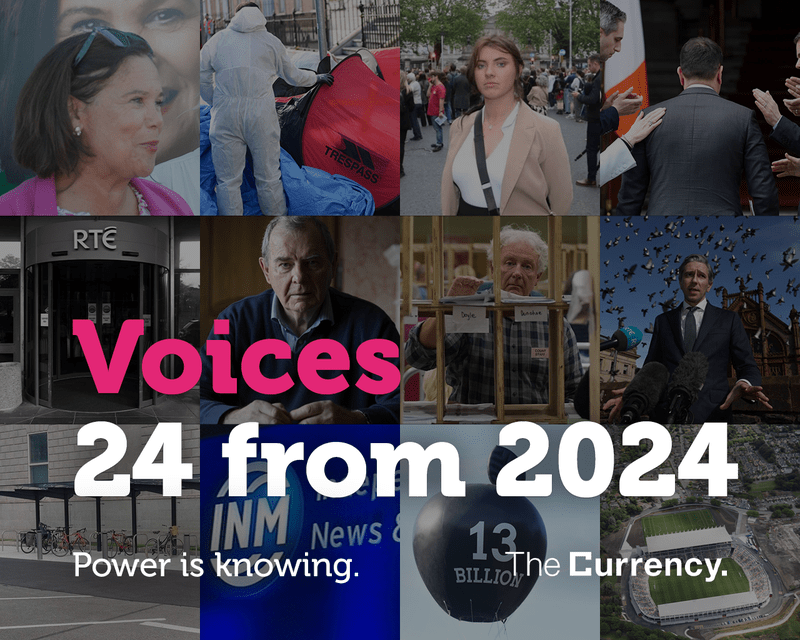Writing a comment piece is tricky.
Of course, you need something to say. But you also need to be able to say it in a way that resonates with people.
The best comment pieces are the ones that create a connection with the reader. They don’t have to agree with the piece – in fact, it is often better if they don’t – but the piece must articulate a clearly held view, and that view must come across.
At The Currency, we have a wide roster of writers who pen opinion pieces, which we publish each day. Given our focus, many tend to write about economics, business and finance. At the weekend, we gravitate to other areas such as sports, politics and culture.
But regardless of the topic or the writer, we want those comment pieces both to challenge and inform the reader, to make them think about things in a slightly different way. Of course, we do not do it every time. But that is the guiding principle, and one we will continue to pursue over the coming years.
Often, our columnists write about the big story – from political resignations to corporate scandals. But we also want them to look at topics that deserve more attention such as climate and Ireland’s role in an increasingly fraught world.
Here is a selection of 24 pieces from the past year. It is far from a definitive list. I could have included more than 100 other pierces. It is subjective, but it gives you a flavour of the pieces we publish and the people who write them.
Paul Flynn: What happens when a white elephant collides with a sacred cow?

The GAA has long occupied a rarified place in Irish public life, serving both as a sporting organisation and a cultural institution. As with any organisation dating back to the 1880s, it carries its own distinct sense of history. Often, that history is complex and emotive.
People like Pádraig Ó Caoimh make the organisation what it is. Ó Caoimh, a former director general of the GAA, believed the GAA should have a pitch and a presence in every parish in the country, and he worked tirelessly in pursuit of that aim. For his services, the GAA’s main venue in Cork was named in his honour when it opened in 1974.
Earlier this year, it emerged that the GAA was selling the naming rights to the stadium and that it was to become SuperValu Páirc. The news was met with a strong public backlash – those speaking out against it included Tánaiste Micheál Martin and Ó Caoimh’s grandson, Donal Ó Caoimh. A compromise was reached, with the stadium eventually being called SuperValu Páirc Uí Chaoimh.
In his column, Paul Flynn looked at the issue of naming rights and also a broader question: Why was the stadium redeveloped at such cost in recent years in the first place?
“This comes down to the essential problem with Páirc Uí Chaoimh. When the GAA was doing its business model, what was it looking at over the next 20 years that would bring people into the stadium?” asked Paul. “This is not a problem of demand but of supply. There are not enough matches in a GAA calendar to fill the stadium, which begs the question: Why do we keep building stadiums when we’re not sure how to fill them?”
Ian Kehoe: The team behind Mannok deserve acclaim, not abuse. Sean Quinn needs to stop hijacking history
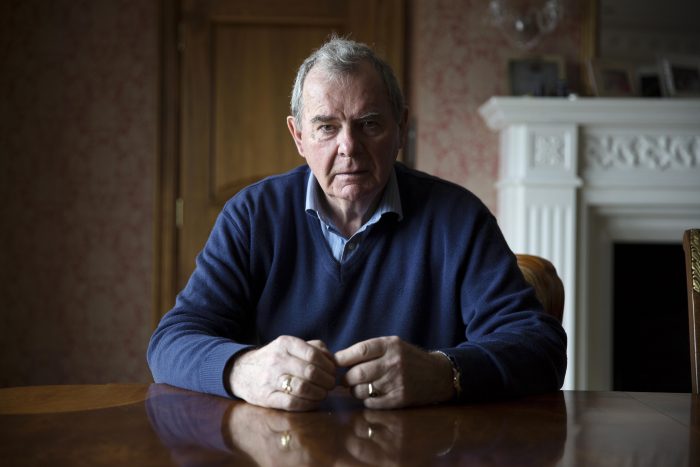
In August, Turkish building materials group Çimsa said it was buying almost 95 per cent of Mannok Holdings, the Fermanagh-based manufacturing company that emerged from the rubble of Sean Quinn’s former manufacturing operation. The deal is worth €330 million and will see shareholders – three hedge funds and a number of local businessmen – make a multiple of their initial investment. Mannok’s management team will retain 5.3 per cent.
To the company, its staff, and its management team, it was a wonderful outcome for a company that had once been on its knees. Quinn, however, had a different take. In a 7,800-word briefing document circulated to members of the media, the industrialist once again sought to settle old scores, deflect blame, level accusations, and chastise those who he feels have wronged him.
He even quoted Booker T Washington, a man born a slave before becoming an esteemed educator and orator: “A lie doesn’t become the truth, wrong doesn’t become right, and evil doesn’t become good, just because it is accepted by a majority.”
In a column, I looked at the company’s performance, something that in itself unpicks Quinn’s arguments. Between 2014 and 2021, sales and staff numbers rose 44 per cent and 25 per cent respectively. Since 2015, Mannok has spent more than €100 million in capital expenditure, funded from cash flow. The group employs about 800 people. The company has nursed itself back from the pandemic and navigated the recent supply chain crisis, too.
As I wrote: “McCaffrey, Lunney and O’Reilly deserve credit, not criticism. So do the investors who bankrolled the 2014 deal. They will all now share in its success. Quinn had his chance to retain ownership. He turned it down. He also had his chance to return, albeit not as the de facto boss. He quickly left. Now, he needs to stop hijacking history.”
At the Entrepreneur Experience, nobody speaks in acronyms to inflate their sense of self-importance
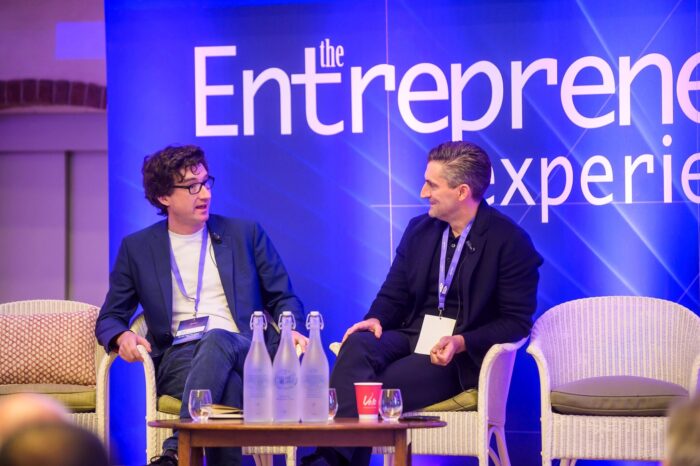
Every year, the Entrepreneur Experience brings together some of Ireland’s most promising new companies. This year, 23 start-ups and SMEs, from a broad swathe of industries – everything from tech to logistics and from hair care to coffee – gathered in Ballymaloe for the event, which is organised by AxisBIC.
Across two days, these founders and CEOs meet with business leaders and experts for valuable insight, advice and wisdom for growing their business and scaling both domestically and internationally.
The Currency is delighted to be a media partner for the event, and to showcase those entrepreneurs and their companies. In the aftermath of the weekend, Rena Maycock, the entrepreneur who serves as a co-captain of the event, wrote about this year’s Entrepreneur Experience.
“The event is all about paying it forward but since I was invited back last year to co-captain alongside the inimitable Jim Barry following Pete Smyth’s retirement from his captaincy, I now realise it’s as much about paying it back. Because everyone gains.
“It is 36 hours of intense openness. A safe space where entrepreneurs both fledging and veteran, whose friends don’t really understand them or speak their language, can communicate with others that have felt or feel the pain and immense pleasure of starting and building a business,” she wrote, adding: “At the Entrepreneur Experience, nobody speaks in acronyms to inflate their sense of self-importance. People are kind, and open and they share. A place where you can comfortably ask without fear of judgement, ‘what is a pitch deck?’”
Shane Lowry’s Kingspan exit crowned its sponsorship woes. But bigger battles may loom in the UK
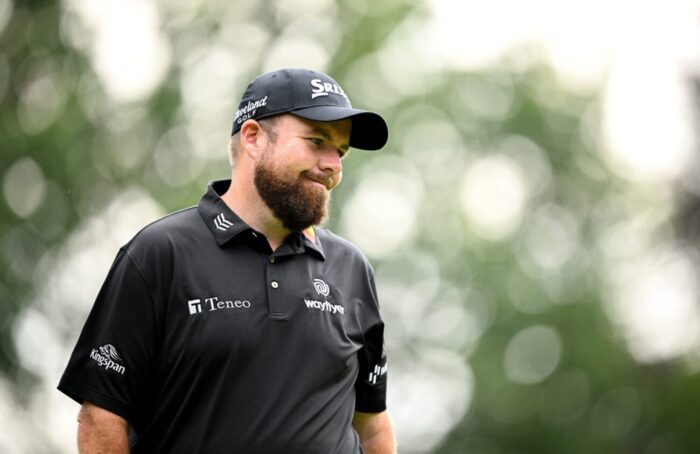
In September, the golfer Shane Lowry confirmed that both he and Kingspan had “mutually agreed” to discontinue their sponsorship relationship, which they “believe to be the right decision for all concerned at the time”. Lowry’s decision to cut ties with the Cavan company, which began back in May 2017, came after continued pressure from the family and victims’ advocacy group Grenfell United.
Lowry’s decision was the latest in a line of sponsorship challenges that have dogged Kingspan since it became associated with the Grenfell disaster. The building materials giant, worth around €14.1 billion, said in January that it would also bring its long-standing association with Ulster Rugby to a close next year. Kingspan’s ties to Lewis Hamilton’s Formula 1 team Mercedes-Benz also came to an end in 2021.
Michael looked at the issue this year, examining potential actions by the UK government. As he wrote, in the midst of a state apology to the victims and families of those affected by the Grenfell tragedy, Prime Minister Keir Starmer pledged to “write to all companies found by the Inquiry to have been part of these horrific failings… as the first step to stopping them being awarded government contracts”. A Cabinet spokesperson would not clarify whether this process would include Kingspan.
Michael argued: “Depending on the extent of the UK government’s actions, Lowry’s turn from Kingspan may prove to be nothing more than a preamble to greater consequences for the Irish giant. While its financial exposure may be somewhat limited, the reputational damage it may suffer in the UK will be harder to quantify.”
Sinead O’Sullivan: Diary of a successful woman who is leaving after a long break-up with Ireland
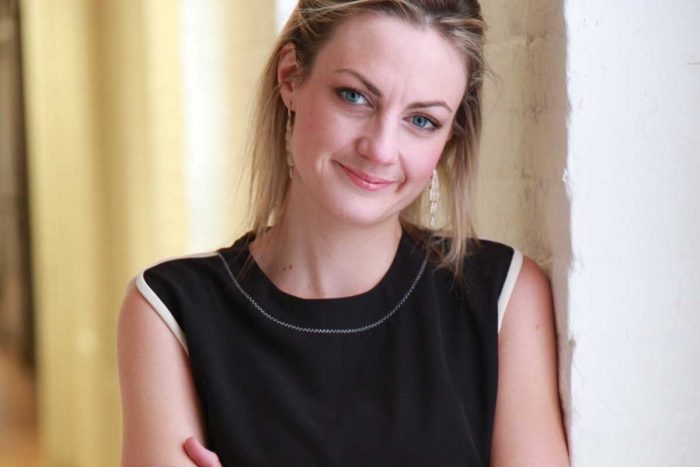
“I was 28 when I realised that men didn’t want to date successful women, and I was 34 when I realised that Ireland doesn’t want to attract successful migrants, Irish or otherwise.”
So wrote Sinead O’Sullivan in her final column for The Currency in April. O’Sullivan has written dozens of articles in her capacity as an Innovation & Disruption Columnist and hosted two podcast series where she spoke to international authors. However, slowly, she fell out of love with Ireland and decided to move on. In this column, she explained her reasons why.
“Relationships ending are never easy but, if done properly and with the best intentions, can help both sides of the couple to reflect and, importantly, to learn and grow. It will take a while to parse out the ‘good’ from the ‘bad’ of living in Ireland as the dust settles, as there are undoubtedly reasons I tried to make the relationship work for so long,” she wrote.
“Over time, I am grateful that what I see looking through the rear-view mirror will inevitably make my time here look better than what I saw looking through the window above the dashboard. After all, I don’t want to hate any of my exes.
“And until then, I guess I’ll be packing up my baggage, emotional and otherwise, and I’ll start to look for a new place to put it all. Maybe, hopefully, in a place where it rains slightly less. Time will tell.”
Stephen Kinsella: Welcome to Ryanairville?

Stephen Kinsella was one of the first people to join The Currency when we launched, writing a weekly column that was nominally about economics, but so often went far beyond that brief. He departed this year to become chief economic advisor to Taoiseach Simon Harris while continuing to work as a Professor of Economics at UL. I could have picked any one of his columns for inclusion in this selection, but I opted for his column on Ryanair’s move to start buying up houses for its crews.
Stephen explained that Ryanair is following an old pattern where very large firms realise that getting serious about production at scale means getting serious about housing. But there are consequences to such a move, as he explored.
“A multinational company’s extensive purchase of housing stock can always crowd out local buyers. This is what happened in Swords. The company’s significant demand can also inflate prices, making housing unaffordable for individuals or smaller investors. This leads to a reduction in diverse private investment in the housing market, as resources are concentrated in the hands of one large entity, potentially leading to less variety and innovation in housing development and management,” he said.
“Ireland exports the solution of many of its problems to the private sector. Somewhat ironically, the housing situation is so bad the private sector is now crowding in bits of itself. We’re not likely to see Ryanairville any time soon.”
Dan O’Brien: The Irish numbers are gravity-defying. But beware storm clouds on the horizon
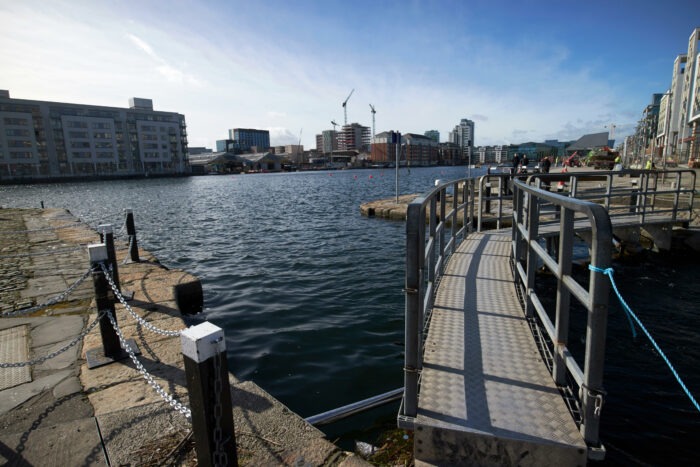
As Stephen Kinsella moved on, the award-winning economist writer Dan O’Brien stepped in as a new contributor to The Currency. In his first column, O’Brien did a deep dive on the current state of the Irish economy, looking at both the economic headwinds and tailwinds.
The way O’Brien sees it, the wheels of Irish industry have never whirred faster. Yet there are company- and sector-specific risks that threaten Ireland’s economic prosperity, not to mention the potential damage of a Trump presidency. He is particularly concerned about Ireland’s overreliance on multinationals, arguing in his first column the need for a stimulus for the domestic economy.
“Europe needs a lot more bottom-up innovation, successful start-ups and high-growth exporters. Ireland does too, even if the weaknesses on these fronts are often masked by multinational successes. Ireland will eventually revert to the rich country mean when it comes to the balance between foreign and indigenous enterprise. If the risks facing the multinationals were to materialise, a rebalancing could take place faster than anyone would want. Indigenous industry would need to pick up the slack. To do that, it would need to be stronger and more competitive than it is today. No government should ever be complacent about this,” he wrote.
Ian Kehoe: Ireland rightly lost the Apple case. But it remains the real winner
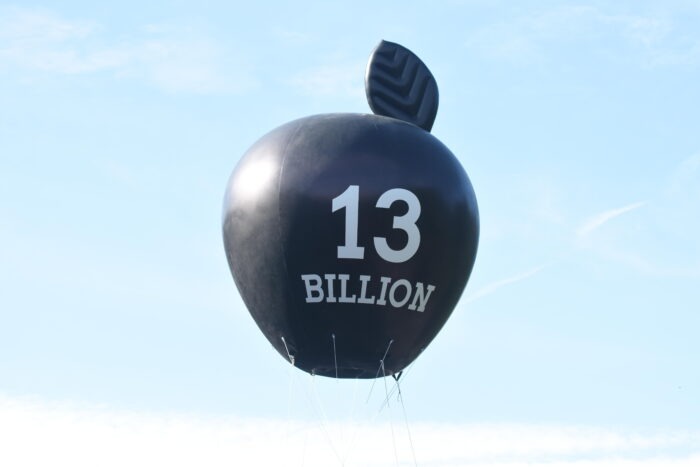
In September, after Europe’s highest court ruled that Ireland had granted €13 billion in “illegal” tax breaks to Apple, I argued that Ireland had played its hand wonderfully.
I have long been critical of the decision to grant two sweetheart deals to the multinational, particularly the decision to roll over the deal in 2007. That latter decision smacked of entrenched arrogance and a blinding indifference to the rule of law.
But, when the competition tzars in Brussels started to rightfully target Ireland, the response from Dublin was masterful. It remained steadfastly loyal to the multinational, denying all wrongdoing, and invoking every legal manoeuvre it could to prevent Apple from writing a cheque. Meanwhile, it sought to rehabilitate its international reputation by reforming the corporate tax system here, while simultaneously helping to rewrite the international tax code by cosying up to the OECD.
As I wrote: “Ireland has spent the last 10 years fighting Europe on Apple while simultaneously rehabbing its reputation and helping rewrite global tax rules. It may have lost the court case. For now, however, Ireland has won much more.
“In the immediate aftermath of today’s verdict, there will be questions about the damage to Ireland’s reputation. I am not convinced. The deal was conceived more than three decades ago. Time passes. People move on to other issues. If anything, the reputational damage was inflicted a decade ago.”
Siobhán Brett: Every day, I read their letters. America’s “inflection point” is an uncomfortable place to be
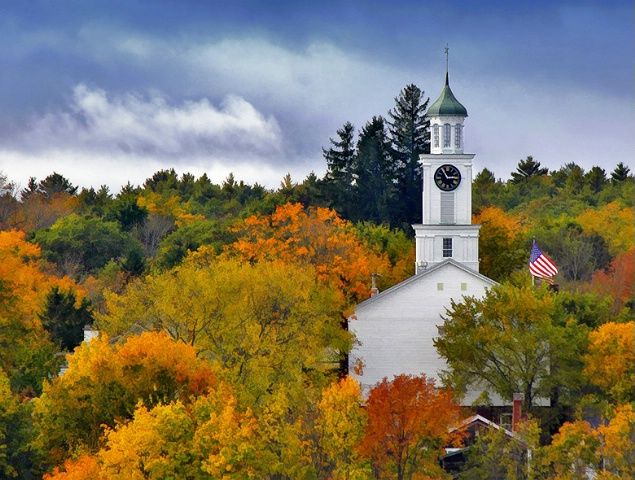
Siobhán Brett is a wonderful writer. Raised largely in Ireland, she now works as an opinion editor with The Portland Press Herald in the US. In that role, her job is to read letters sent to the editor and then select the ones that appear in the title. Over the course of the year, she wrote a number of pieces for The Currency looking at the US election. In her first column, she examined the divisions with America through the prism of the letters that she reads daily.
“The push and pull of the news cycle has led to incredible caprice in the inbox,” she wrote.
“One week, letter writers are entirely preoccupied with old age and the degree to which degenerative disease can be determined by observing public speech; the following, somehow quarrelling about the ins and outs of snipers’ preparations, the state of the Secret Service and how much or little one can reasonably be expected to bleed from the ear; the week after that, unbowed by a historic campaign reset the likes of which few of us have seen in our lifetimes, exhorting everybody to snap into position, to get in line again.”
Sam Smyth: “The whole truth of the INM 19 has yet to be told — I believe we deserved better”

For almost six years, two High Court-appointed inspectors have been investigating the business and governance of Independent News and Media (INM) following an application by the State’s Corporate Enforcement Authority (CEA).
The investigation was triggered following a slew of revelations and protected disclosures relating to data breaches, aborted deals, and the alleged disclosure of confidential information. The report of the two inspectors, the senior counsel Sean Gillane and British lawyer Richard Fleck, was published in late September. Sam Smyth, our senior contributor and one of the so-called INM-19 who had their data hacked, gave his view on the report. He was, shall we say, less than impressed.
“I want to know why it went on and on — and on to me. One of the many frustrating elements in the inspectors’ report for me is what appears to be a dearth of curiosity about who did, and who didn’t, do this or search that. Why didn’t they ask the question ‘Why?’ more often?” he asked.
“I thought the raison d’être for the inspection was to find an explanation for a trawl of the personal data of 19 people in a major publicly listed company. But now I learn I was wrong as the inspectors had concluded that answering this question was not part of their remit.
“Why, I wonder, did nobody ever ask me about INM’s search of my data. Would my experience and knowledge of the people in and around INM not be helpful to their investigation?”
Sinn Féin and the dangers of an iron demand for loyalty
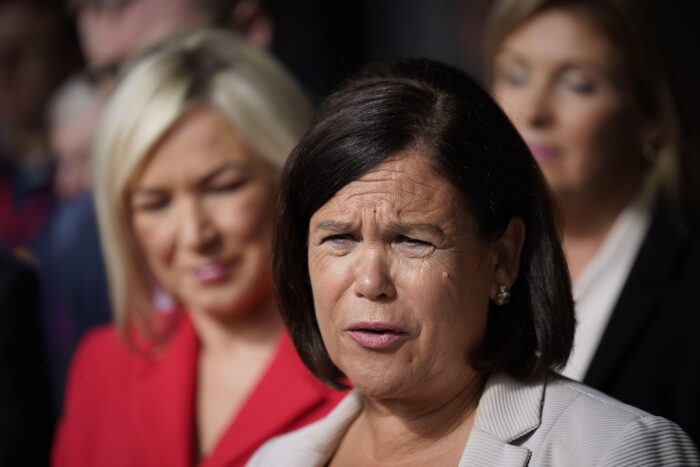
In October, Sinn Féin was engulfed in multiple controversies. The party was dealing with the resignation of its front-bench TD Brian Stanley just as it embarked on a “a complete overhaul of governance procedures” following the McMonagle controversy. John Looby normally writes about the market and investing for The Currency. This time, he turned his eye to Sinn Féin.
“For those who’ve invested their hope in Sinn Féin, the McMonagle debacle is a turning point. While the shattering of that hope is no doubt painful, they must now see Sinn Féin for what it is. A movement welded to loyalty that threatens the foundations of our society. To protect the fairness and freedom we cherish, the time for naiveté is over,” he argued.
Urging caution: How the Olympics transformed a nation
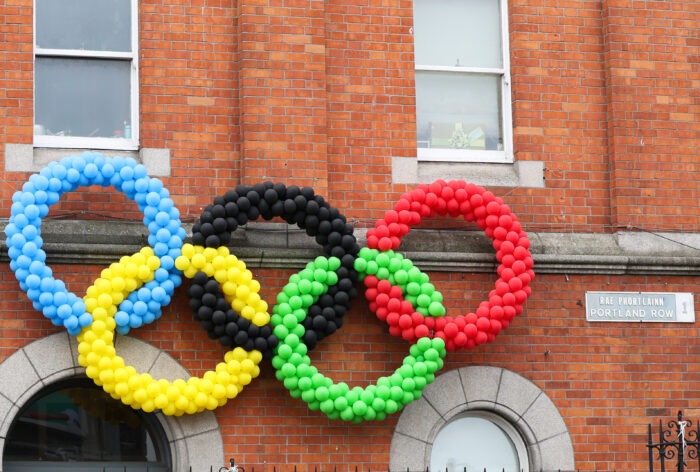
In August, Dion Fanning and his family were in Skibbereen on a family holiday. It was 10am and at 11.02 (everybody knew the exact time), Paul O’Donovan and Fintan McCarthy would be racing for gold.
There was an Olympic flame burning outside the town hall. Inside, people were already gathering.
They won of course, and it was another medal for Ireland in a wonder Olympic summer. In a thoughtful essay, Dion examined what Olympic success meant for the country, and why it was important to savour the moment and abandon caution.
Ads her put it: “We have been able, for the most part, to block out the reality at the Olympics. Reality is always trying to edge in at the Olympics. It could be seen in the ugliness of the pile-on in the boxing; it could be seen as Salwa Eid Naser, back from a two-year ban, spooked Adeleke in that semi-final; it could be found in the pool and on the track if you wanted to look.
“The reality is a product of expectation and expectation can lead people to do and demand all kinds of impossibilities. Ireland, as we know, is not immune from the ugliness of that reality either.
“So maybe there is nothing to learn from what Ireland has achieved. Nobody should feel at a policy level that this is a job well done, not when the autumn and winter will see children unable to play sport for months because all pitches are unplayable.
“There will never be a summer like this again and that should be enough for all of us. We escaped from the real world thanks to the dedication of athletes and coaches who live in a different reality the whole time: a reality based around extraordinary dedication and perseverance. We escaped from reality and lived in a world where caution was for others. Caution was another country.”
The government has neglected RTÉ for decades. The new chair of the broadcaster must force radical change
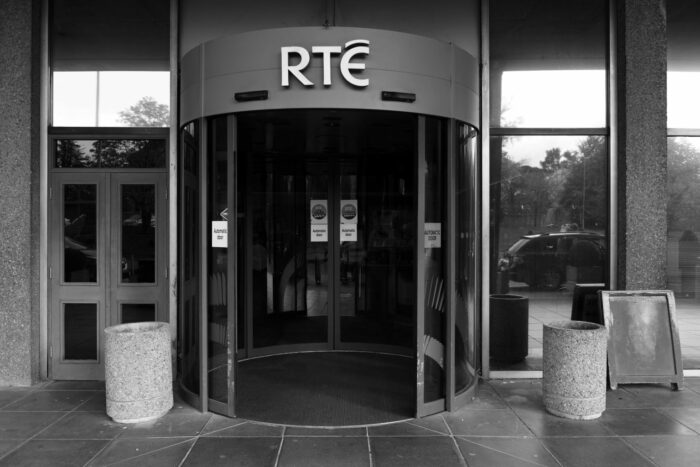
As Catherine Martin appointed Terence O’Rourke as chair of RTÉ in March, the veteran of corporate and semi-state boardrooms was preparing to release bumped annual results of the other state-owned company he chairs, ESB, writes Thomas Hubert. As I put it at the time, O’Rourke can’t expect as much luck at RTÉ as he had had at ESB. That week, Fintan Drury, another former chair of RTÉ, looked at the controversies and issues that had engulfed the national broadcaster. He honed in on the role of politicians.
“RTÉ’s woes of recent months are nothing more than the manifestations of an unconscionable level of neglect by those entrusted with its care – our legislators,” he wrote.
“Perversely, the very culprits responsible for RTÉ’s threatened state are those interrogating the cause of the organisation’s troubles. This and the appointment of a new board chair needs close attention: The former because, nine months on, our legislators remain largely untouched by the controversy; the latter because the choice of chair suggests that the neglect is set to continue.”
How climate change could trigger a new wave of global migration
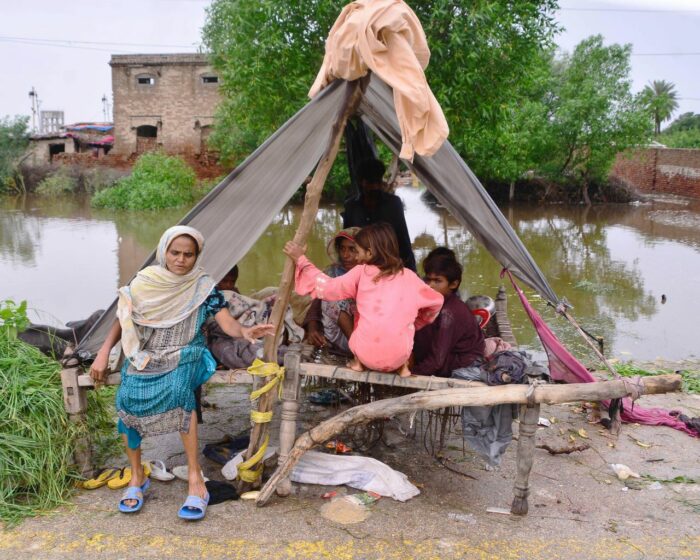
Rising temperatures across the world are making many regions uninhabitable, resulting in mass population shifts. In a thought-provoking column, Tara Shine wrote that nations must now start to accept immigration as a climate adaptation strategy.
She is not wrong. When the climate expert wrote the column in early 2024, the most recent data showed the number of migrants entering the country in the year between April 2022 and April 2023 stood at 141,600, an increase of 31 per cent on the previous year according to the ESRI. In the same period, 64,000 people left Ireland, a 14 per cent increase in emigration.
“Climate change is destabilising the world as temperatures rise, extreme weather becomes the norm and the sea level rises. The first thing we need to do is to stop causing the problem by moving quickly away from fossil fuels. This will make more of our planet habitable allowing people to stay in their home countries,” she wrote.
“The second thing we must do is adapt to the new normal. Part of that will be accepting migration as a climate adaptation strategy and integrating that into our development. Housing, health and education should value immigration and see it as a resource with which to build a sustainable and inclusive society.”
Ronan Lyons: A new government must address an old challenge
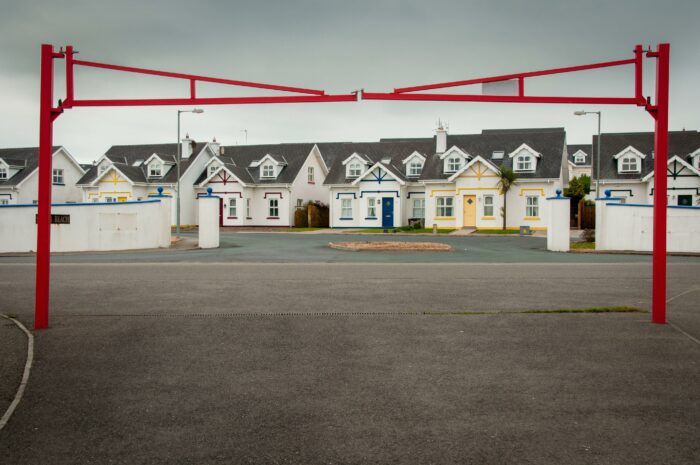
Ronan Lyons is one of the most prescient commentators on Ireland’s housing sector. His articles are fact-based and draw from international and national research. He looks at the numbers and argues policies based on them. In the aftermath of the election, he looked at the neverending housing crisis, and the issue facing the next government. It made for sobering reading.
The way Lyons sees it, Ireland is now 13 years into a rental market crisis. And despite eight years of evidence that the strategy of capping rents and diverting demand simply doesn’t work, he believes that not a single political party that ran in the election last week had any sort of strategy for the rental sector.
“The only solutions on offer are the ones that were already tried and didn’t work. The one that was tried and did work – boost supply to limit rental growth, as happened in Dublin in 2023 – did not feature,” he wrote.
“If the parties that are to form the next government don’t wake up and realise the error of their ways, we will be writing in another few years about a rental crisis hurtling towards its third decade.”
Ian Kehoe: Fianna Fáil is banking on €5.2bn from “efficiencies” and “second-order buoyancy effects”
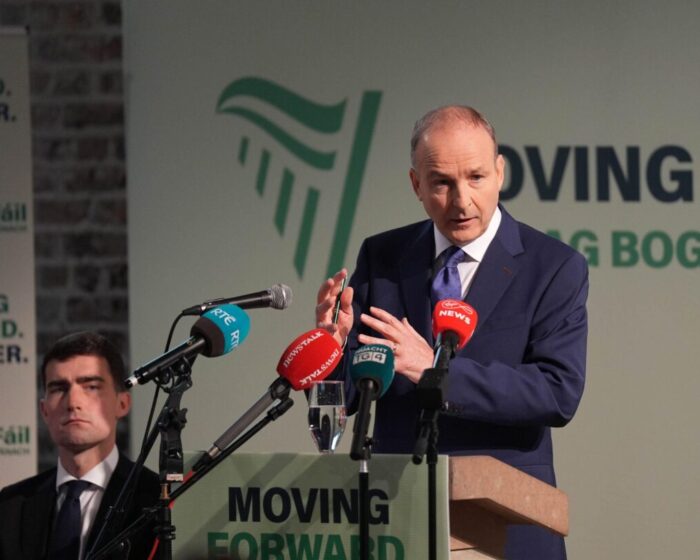
Just six weeks before the election, Thomas and I made our way to the Department of Finance to conduct post-budget interviews with Jack Chambers and Paschal Donohoe. The two budgetary ministers, fresh from unwrapping a whopping €10.5 billion package, were in splendid form, happily highlighting the inter-party collegiality that had underpinned the process. Both argued the case for the politics and economics of the centre, and the cruciality of surpluses to social progress.
When the election began, the budgetary bonhomie between the two ministers, and their respective parties, subsided, replaced by a public spat over the costings in Fianna Fáil’s election manifesto. The dispute came following a column I wrote examining Fianna Fáil’s manifesto outlining how it relied on €500 million in additional tax compliance measures, €2.5 billion in public sector efficiencies and €2.2 billion in “second-round buoyancy effects”.
“Making sense of all those numbers is not easy. And that is before you get into the small matter of an expected slowdown in corporation tax growth. Fianna Fáil is clear on its plan. But its manifesto is far from clear how it will pay for it all,” I wrote.
Natasha O’Brien’s story feels like every other one – and that is the problem
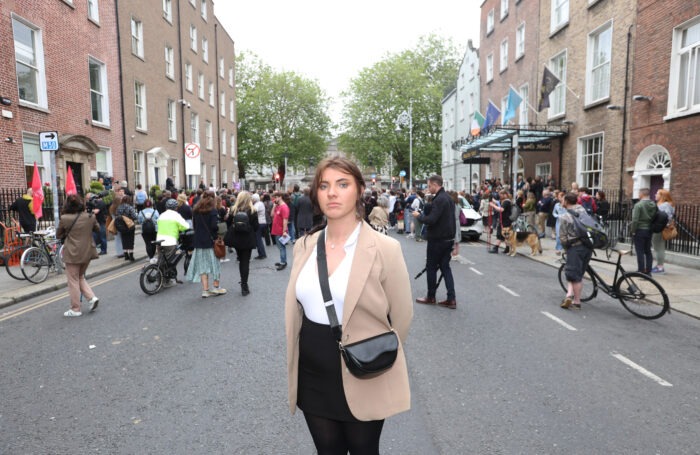
On Sunday, May 29, 2022, 22-year-old Natasha O’Brien walked along a well-lit, well-paved, fit-for-purpose path on O’Connell Street — to walk home after working a shift in a pub in Limerick City Centre. It was here she came across off-duty Irish soldier, Cathal Crotty, a man of a similar age, shouting homophobic slurs at strangers passing by. O’Brien interjected his hateful language, shouting back at him to stop. In retaliation, he attacked her: grabbing her hair and knocking her to the ground, punching her at least six times until she fell unconscious. His punches caused her to obtain several severe injuries, including a broken nose, cranial swelling, bruising and a concussion.
The judge presiding over the case, Tom O’Donnell, gave Crotty a fully suspended, three-year sentence and ordered him to pay €3,000 in compensation. The DPP has since appealed against the suspended sentence on the basis of undue leniency, but in its immediate aftermath, it sparked public protests during which O’Brien spoke passionately and articulately.
In her column, Kate Demolder argued that violence against women has shaped Ireland, so much so that a neologism popularised in the seventies has become omnipresent: femicide. Women in Ireland are at breaking point, she wrote.
“On the surface, Ireland is a mostly liberal country, but the misogyny runs deep. It’s the reason that male athletes are treated like gods and female teams are left to get changed in the dirt,” she wrote.
Tom Lyons: A ring of silence that allowed a ring of abuse to go unchecked
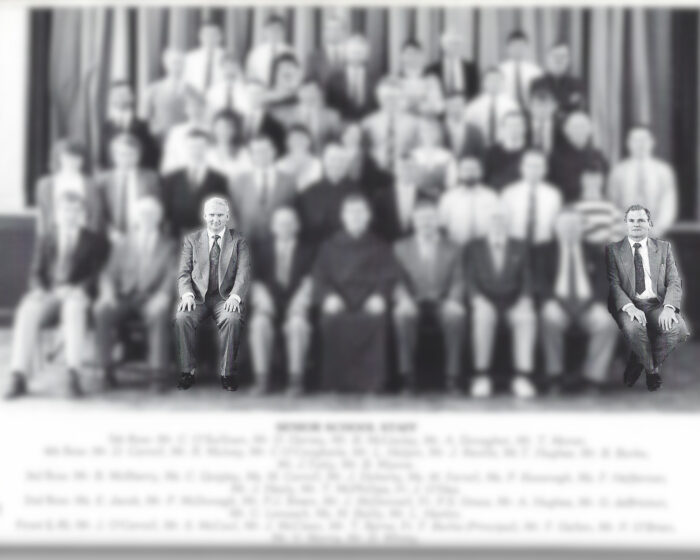
In September, the scoping inquiry report into the abuse of children in schools run by religious orders was published. It was a damning and disturbing document. The bravery of the men and women who have come forward is awe-inspiring.
The inquiry found 2,395 allegations of sexual abuse in 308 schools recorded by the religious orders that ran those schools. Allegations were made against 884 alleged abusers, half of whom are dead.
Days after the scoping work was published, Garda Commissioner Drew Harris said gardaí are investigating if the abuse of children by religious orders was organised and coordinated by paedophile rings.
Tom argued that it is hard not to believe that rings existed. Some paedophiles must have known of each other and assisted each other as they carried out their crimes over decades. “The scale is simply too large, and the number of people involved is too high.
“But there was also a second ring – the ring of adults who suspected something was going on, and didn’t do enough to protect children,” he wrote.
Sam Smyth: There is nowhere to hide for a politician who cannot persuade voters to vote for him
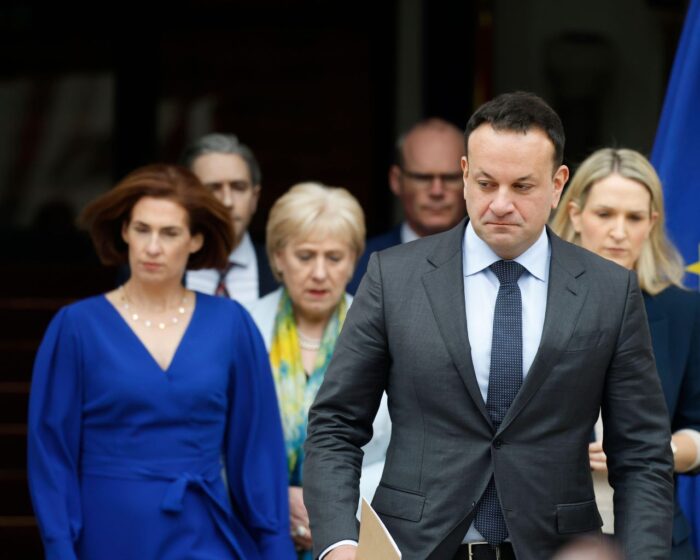
In March, Leo Varadkar announced that he was stepping down as leader of Fine Gael, and as such, Taoiseach. He was just 45 when he made the announcement. In the aftermath of the decision, Sam Smyth looked at his mixed legacy.
Sam looked at the credit column, such as the symbolism of an openly gay man of Indian heritage holding the office. He argued that it was a remarkable testament to his integrity and character that he was never credibly accused of hypocrisy for advocating for liberal social ideals while holding instinctively conservative views. “Varadkar was always more convinced by wealth creation than welfare, friends recall,” Sam wrote, adding: “Paradoxically, he confounded critics in recent years by turning on the spending tap when Paschal Donohoe’s shrewd economic policies had filled the government’s political war chest.”
However, he also looked at his poor record of leading Fine Gael in elections, and his failure to deal with the housing crisis.
“Like any other serving Taoiseach, he would rather forget some of his sillier antics and foolish misjudgements. It would also be impossible to ignore how his recklessly careless personal life heaped notoriety across social media while offending and embarrassing many of his friends and family,” Sam said.
“Leo Varadkar is also very intelligent and capable – but he can also be gauche, vulnerable, socially awkward. He is not corrupt and neither did any of his questionable judgements curtail the quality of his political leadership.”
Employers must face reality. Getting everybody back to the office is not going to be easy

Our Talent and Recruitment Columnist Paul McArdle writes about workplace trends, human resources, and the relationship between employees and employers. Increasingly, much of his effort has been examining that relationship in a post-Covid world. One of the big issues has become remote working, working from home, and the growing demands of employers to get staff back on site.
The debate around employees returning full-time to their company’s offices was intensified this year by Amazon’s decision to require everybody back inside. Other companies will likely follow suit but employees will also have their say.
“Andy Jassy and Amazon are making a power play. They believe what they do suits their business and their employees. We will see lots of other companies follow Amazon’s lead. How this plays out will affect each and every one of us,” wrote McArdle.
“Buckle up there is turbulence ahead, it will be fascinating to see how this plays out.”
Colm McCarthy: There should be a judge-led public inquiry into the NCH debacle
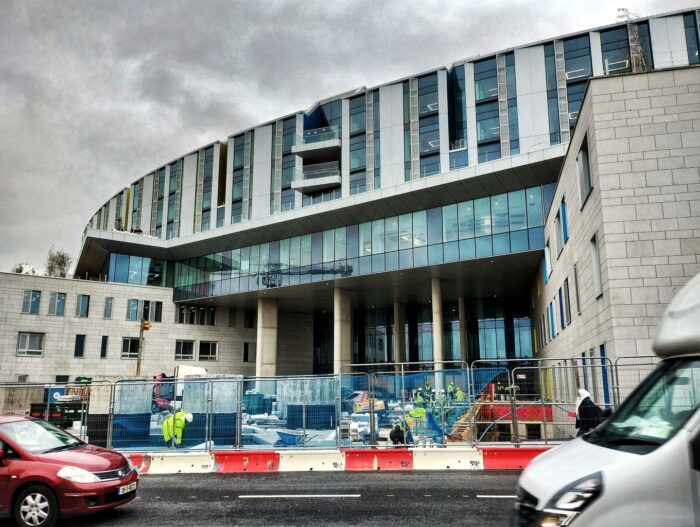
In his columns this year, Colm McCarthy has written extensively about obtaining value for money on capital projects and the abandoning of the public spending code. In September, he trained his attention on the National Children’s Hospital, a project that is massively late and dramatically over budget.
In McCarthy’s view, there should be a full inquiry by any of the Oireachtas committees into the NCH debacle, the biggest overshoot on a single project in the state’s history. “Two committees have devoted numerous sessions for most of a year to the financial mismanagement at RTÉ, where no more than a few million has gone astray,” he wrote.
He added: “There should be a judge-led public inquiry into the NCH debacle. It may as well commence straight away and should focus first on the initial decisions about location. Back in 2005, the favoured site was to be in a traffic black hole in Dublin’s north inner city at the Mater, in the constituency of the Taoiseach of the time, Bertie Ahern. Since the facility is national, the case was made for a site somewhere more accessible to provincial patients and greenfield locations were available along Dublin’s M50 orbital motorway.
“Instead, an alternative traffic black hole in Dublin’s south inner city was identified, at St James’s, and this decision, and its contribution to higher capital and operating costs, should top the judge’s agenda. The judge should also inquire into any contribution which medical politics may have made to the location decision and to subsequent confusion about design.”
Typically untypical: Ronan O’Gara and the art of effective leadership
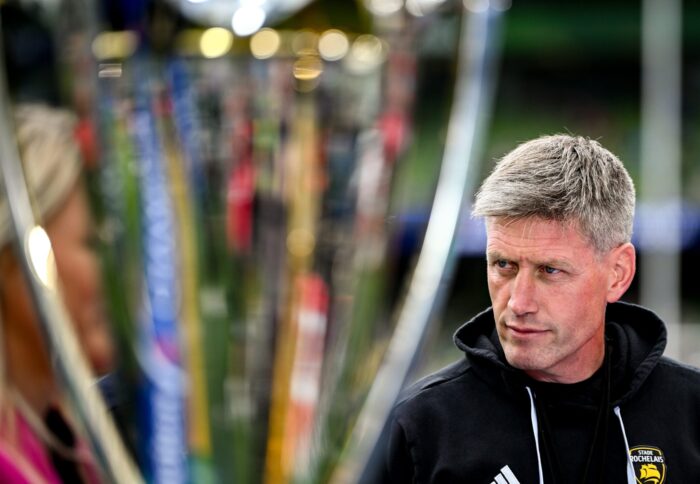
Brett Igoe uses data and analytics to a great extent in his rugby columns for The Currency. And he also used numbers and data to analyse Ronan O’Gara’s leadership style. But he went further, examining the strategies employed by the former Ireland international to achieve such success with La Rochelle.
The way Igoe sees it, O’Gara’s coaching ethos is a fusion of strategic brilliance, motivational strength, and psychological insight. Both his career trajectory and his methodologies echo the depth and, sometimes, the cunning that Machiavelli advocated for effective leadership.
“Through a comprehensive leadership approach that marries tactical preparation with emotional intelligence, O’Gara forges a path that transcends the game, deeply impacting his team and resonating with the wider community they represent. Like him or loathe him, you can’t but admire him in taking control of his coaching journey to date and developing himself as one of the best coaches in the world,” according to Igoe.
Tommie Gorman: A country struggling with the reality that people seek a better life
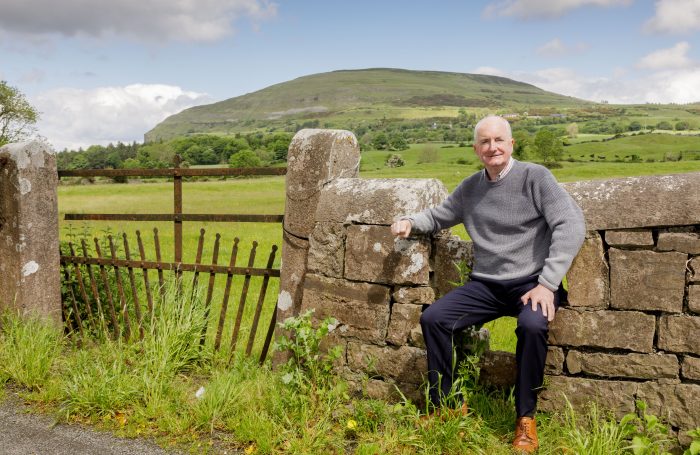
Our friend and colleague Tommie Gorman died suddenly in June. Tommie was the lynchpin of our weekend coverage, an anchor who brought knowledge and expertise to his columns. His death, at the age of just 68, shook us, and so many others, to our core. I am writing about Tommie elsewhere over the period, but I wanted to include this article to finish our list, because it showed the depth, emotional intelligence, and empathy that Tommie had in such abundance.
In April, tents and their occupants were removed from outside the International Protection Office on Dublin’s Mount Street as the UK and Ireland fell out over the movements of refugees between the two jurisdictions.
I called Tommie to see if he wanted to address the issue in his column. I was unsure of what he would write, or how he would approach the topic. He understood the politics of the issue better than most; his work in Europe had exposed him to the issue of migration, while his time in Belfast ensured he understood the delicate issue of the border.
Tommie, however, looked at the politics and the policies through the prism of people. It was what he did best. He began by telling the story of Peter Sutherland who, in his later years, became a passionate campaigner on migration.
He followed this up with the story of the EU, and how it had grown and grown over the decades, primarily because people were searching for a better life.
The article ended: “In those final years of his life, Peter Sutherland spoke what he believed was the unvarnished truth to power. People seek a better life. For many of those fleeing poverty as well as war, Europe is considered a place of opportunity.
“Ireland may be on the outer edge of the European Union but it has become one of the EU’s wealthiest member states. If Ireland’s economic growth is to continue, it will require a workforce to sustain it. The workers will require houses and schools and transport systems and health services. The new cohort of housebuilders will themselves require houses.
“Regardless of what combination of parties forms the government in Dáil Eireann, managing growth is the challenge of our times. To date, we are struggling to deal with what is an unavoidable new reality.”
